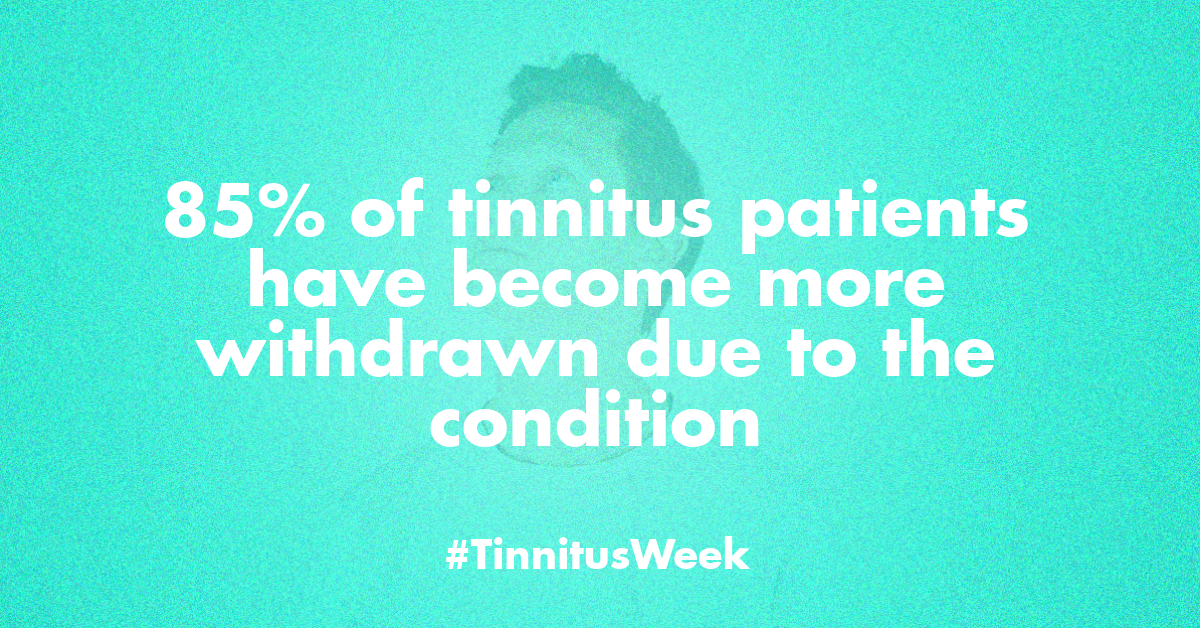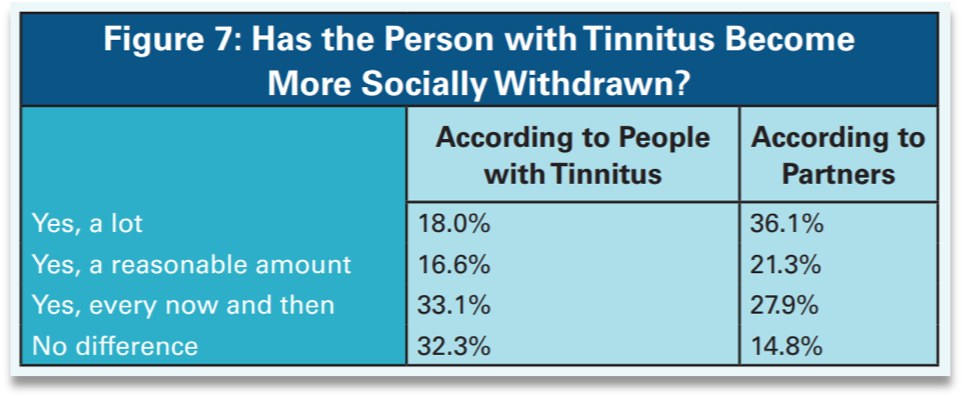
Does Tinnitus Make You Reclusive?
Tinnitus Week 2019 / Day 6
Yesterday we talked about tinnitus and relaxation. Today we will explore how tinnitus can affect one’s capacity or willingness to engage in social situations. Many people with tinnitus report some negative effects on their social life and/or their relationships with others. Please take a look at this video from Tinnitus Talk member Samantha about how she has found her tinnitus to be an isolating experience.
A recent Tinnitus Hub survey sheds more light on the issue. More than 2 in 3 of tinnitus patients experience some impact on their ability to engage socially. Interestingly, partners or significant others observe a higher degree of social withdrawal (85%) than people with tinnitus report about themselves!

Source: Tinnitus Hub “Support Matters” survey (2018). See full details here.
We also did some statistical analysis on this data and found that individuals who are more bothered by their tinnitus are also more prone to social isolation – this is a very strong correlation! (Pearson correlation = .406 significant at the 0.01 level, 2-tailed.)
Does this mean that if tinnitus patients would only get out and socialise more, they would feel less bothered by their tinnitus? Well, as always when it comes to statistics, it’s really not that simple – correlation does not equal causation.
Indeed, for some people, the implication could be that by hiding away in their homes, without any distractions, their tinnitus becomes more bothersome. Overcoming whatever barriers they face, and getting out more, could provide a welcome diversion for the mind, redirecting one’s attention away from tinnitus towards more pleasant experiences instead.
However, we also know it’s not that simple for many. As Sam clearly describes in her video, going out often means exposing yourself to loud sounds, which can be scary or even risky. For someone with hyperacusis, it might even be an impossibility at times, when distress or pain levels just get too high. We also know that many tinnitus patients suffer from co-morbidities like chronic pain or depression, which might make it very difficult for someone to “just get out more.”
Finally, we should consider the possibility that a third factor could be at play here – something that causes both tinnitus annoyance and reclusiveness. It could be that – at the level of the brain – it’s not as simple as: higher tinnitus annoyance makes you more reclusive; or higher reclusiveness makes you more annoyed. There could instead be some fundamental neurological pattern causing both these things to occur. This is merely speculation of course, but some recent neurological research does seem to point in that direction.





